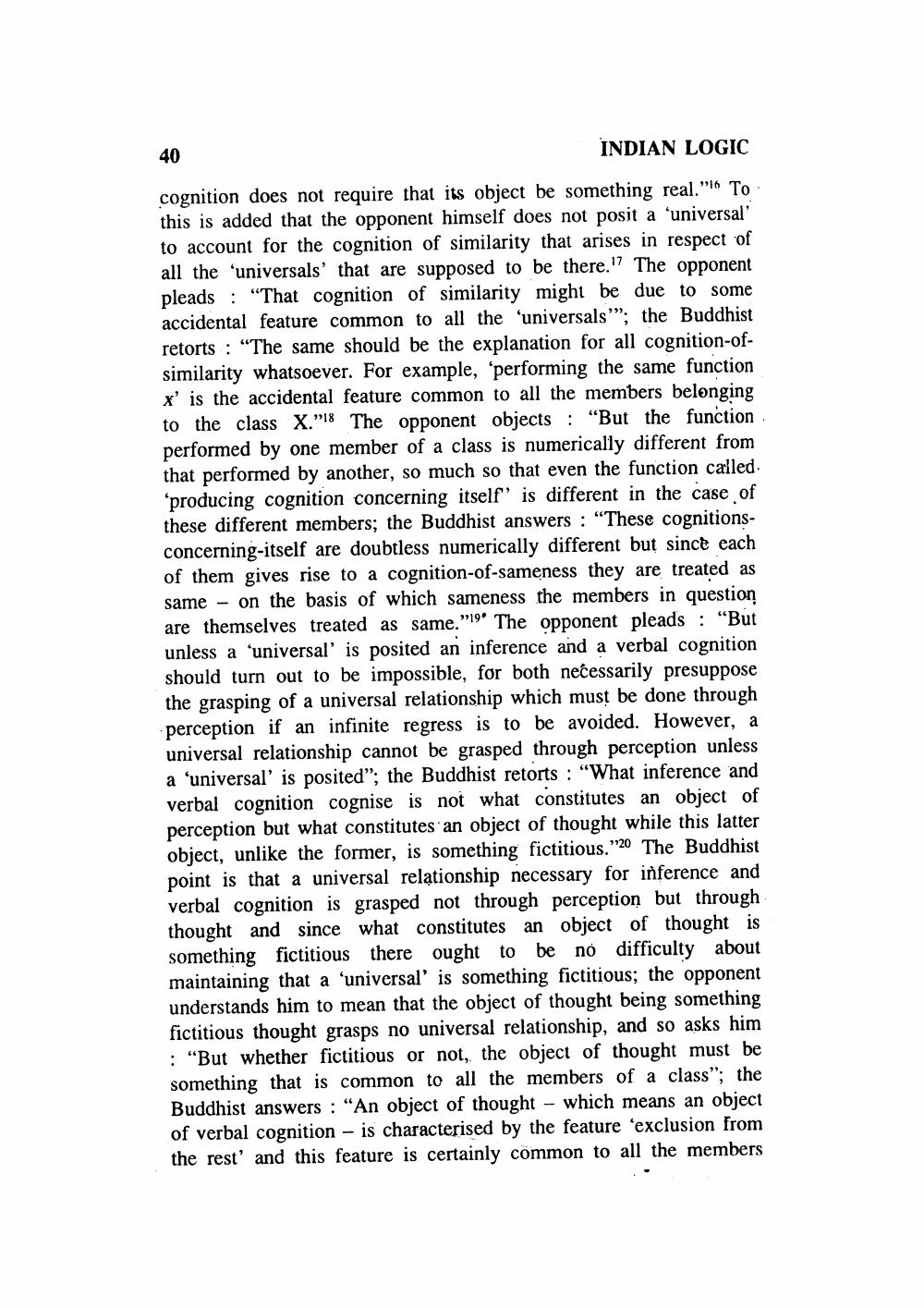________________
40
INDIAN LOGIC
cognition does not require that its object be something real."!" To this is added that the opponent himself does not posit a universal' to account for the cognition of similarity that arises in respect of all the universals' that are supposed to be there. The opponent pleads: "That cognition of similarity might be due to some accidental feature common to all the universals””; the Buddhist retorts: "The same should be the explanation for all cognition-ofsimilarity whatsoever. For example, 'performing the same function x' is the accidental feature common to all the members belonging to the class X."18 The opponent objects: "But the function performed by one member of a class is numerically different from that performed by another, so much so that even the function called 'producing cognition concerning itself is different in the case of these different members; the Buddhist answers : "These cognitionsconcerning-itself are doubtless numerically different but since each of them gives rise to a cognition-of-sameness they are treated as same - on the basis of which sameness the members in question are themselves treated as same."19" The opponent pleads: "But unless a universal' is posited an inference and a verbal cognition should turn out to be impossible, for both nećessarily presuppose the grasping of a universal relationship which must be done through perception if an infinite regress is to be avoided. However, a universal relationship cannot be grasped through perception unless a 'universal' is posited"; the Buddhist retorts: "What inference and verbal cognition cognise is not what constitutes an object of perception but what constitutes an object of thought while this latter object, unlike the former, is something fictitious.”20 The Buddhist point is that a universal relationship necessary for inference and verbal cognition is grasped not through perception but through thought and since what constitutes an object of thought is something fictitious there ought to be no difficulty about maintaining that a funiversal' is something fictitious; the opponent understands him to mean that the object of thought being something fictitious thought grasps no universal relationship, and so asks him : “But whether fictitious or not, the object of thought must be something that is common to all the members of a class"; the Buddhist answers : “An object of thought - which means an object of verbal cognition - is characterised by the feature 'exclusion from the rest' and this feature is certainly common to all the members




